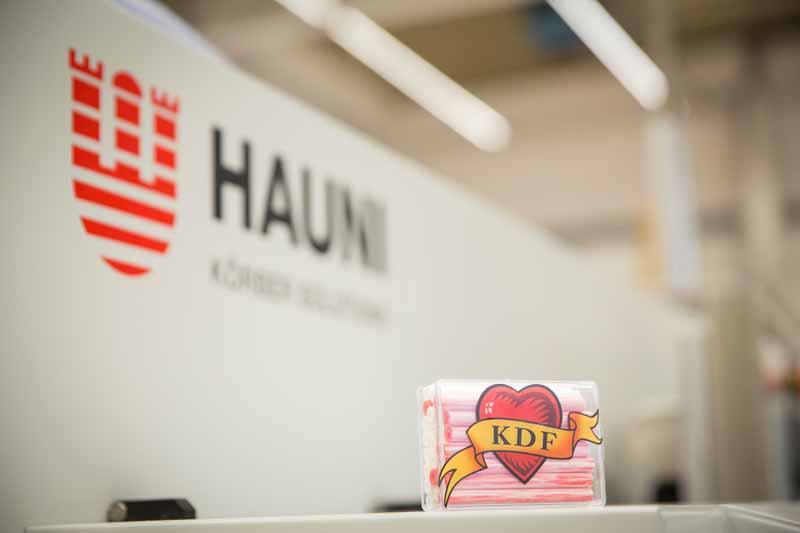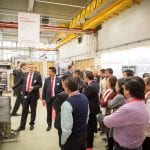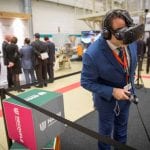Innovating for tomorrow

Hauni stresses digitization, flexibility and efficiency at its in-house exhibition.
By Stefanie Rossel
The intelligent factory and digital transformation were the main themes at Hauni Maschinenbau’s open house, staged in November on the occasion of the company’s 70th anniversary.
Under the motto “Innovative technologies. Smart services. Focused on your success!” the company had set up 54 information stations throughout its production halls. In a relaxing atmosphere, more than 500 visitors learned about topics pertaining to the future of tobacco engineering.
Hauni presented a range of new service concepts. For example, customers can now outsource their supply chain management to the company, allowing them to reduce their cost by up to 50 percent, according to Hauni.
The machinery manufacturer also offers performance analysis, evaluating data and advising customers about potential improvements in their production processes. Hauni’s service portfolio includes several other features, such as product cycle management or a remote service for troubleshooting.
Characterized by a high degree of interconnectivity, the hardware on display in Hamburg, Germany, catered to all sectors of the tobacco industry. It included specialized equipment for the production of shisha capsules, iQOS “HeatSticks” and snus.
Particular emphasis was placed on process optimization. The Protos M5e cigarette maker offers more than 95 percent efficiency—greater even than that of the company’s acclaimed M5, according to Hauni.
The firm also presented various entry-level solutions, including a complete standardized primary, as well as a cigarette maker, Protos M4. Capable of producing 10,000 cigarettes per minute, the Protos M4 is a good fit for Hauni’s new entry-level filter maker, KDF 2 NEO.
KDF 2 NEO was one in a series of new filter makers shown at the in-house exhibition. Another member of this group, KDF 2 ER-D, can produce hollow filters with shapes, such as letters, at the tip. The KDF6 MF LEAD multi-filter maker, meanwhile, enables operators to perform the world’s fastest brand change, according to Hauni.
During the event, Hauni also presented its new premium filter maker, KDF6 LEAD—not to be confused with the KDF6 MF LEAD described above. With the addition of Hauni’s Flexport modules, the KDF6 LEAD can produce a large variety of special filters, inclusive of thread or capsule insertion. A 3-D format change takes less than an hour, and other format changes can be performed even more quickly, Hauni says.
New instruments were presented by Hauni’s subsidiary Sodim, a lab-testing equipment manufacturer. Its Sodiscan MWS is an off-line detector for the right capsule position in the filter and important for quality assurance. Sodilab checks whether the grooves in ventilated filters are even and perfectly shaped. Sodim ASP allows for automatic testing of cigarettes, servicing cigarettes one by one. When checking cigarettes from a double-track maker, the channel rod detection module can detect, with the help of laser technology, from which track the cigarette has been picked.
Hauni has also been exploring the possibilities of “additive manufacturing,” the manufacture of machinery parts by a 3-D printer. This new technology enables shorter delivery time of components; it also helps Hauni to improve the function of parts. Some 3-D printer-produced parts have already been built into Hauni machinery.
At one of the information stations, visitors could dive into the world of virtual reality and “handle” a machine that exists only in a computer program. Together with another German company, Hauni developed an augmented-reality program to help explain its products. In the future, the system may also support operators.
Right now, they may already benefit from Hauni’s key support tools, which are connected through the company’s data processing and analysis system, AREO. Through an app, they provide operators with data of the entire plant, circuit diagrams, reference books and potential solutions to machinery malfunctions. In six to 12 months’ time, Hauni will introduce solutions for various machinery access levels by radio-frequency identification.






